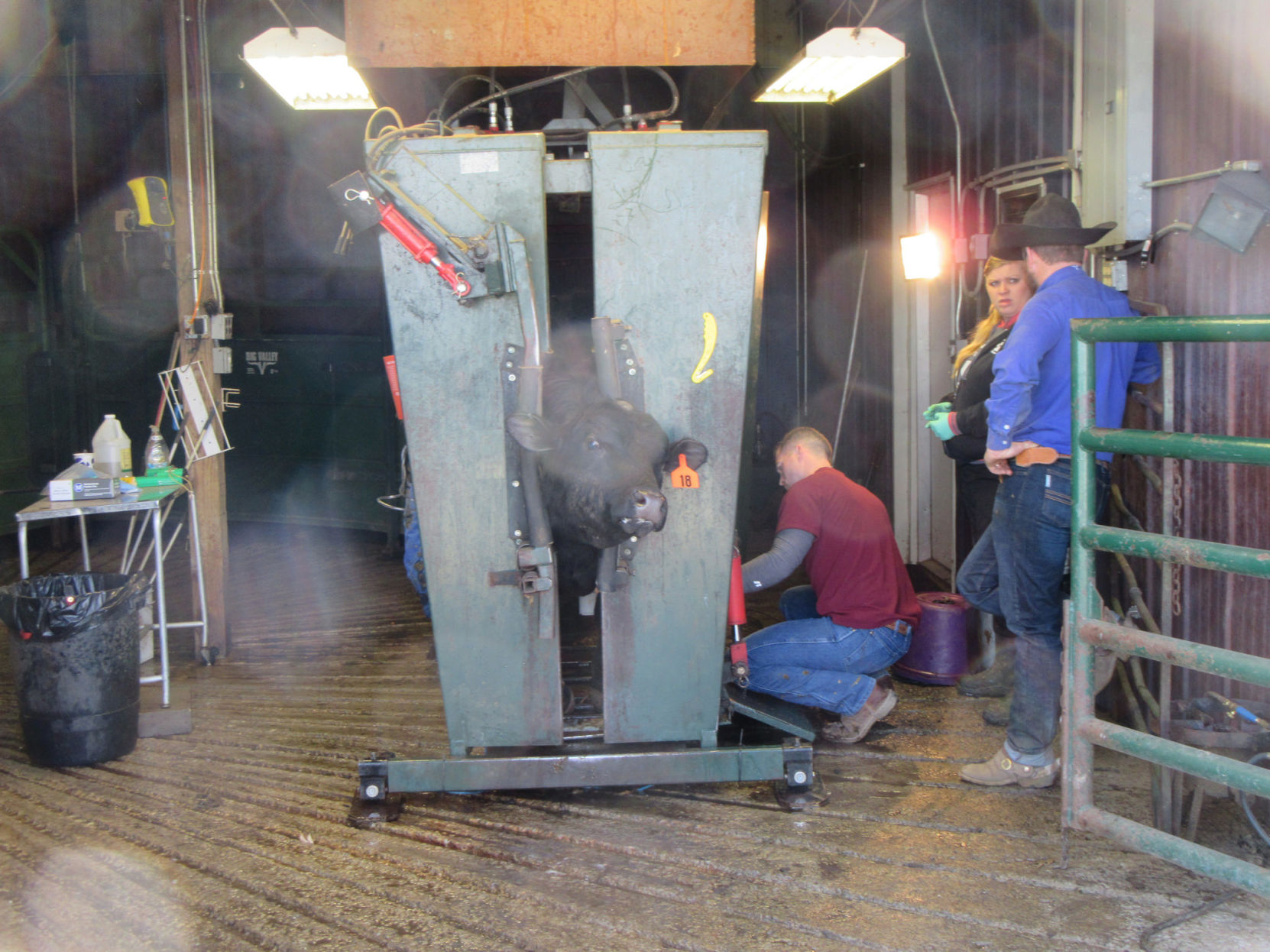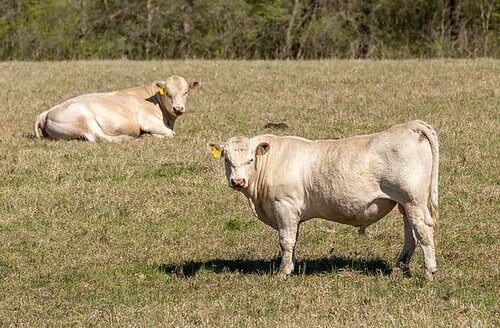Bull breeding soundness clinics find 90 percent of bulls suitable, says MU Extension specialist

Ten percent of the 220 bulls tested during the bull breeding soundness clinics held in southwest Missouri during March did not pass. This number is about the long-term average for the clinics that began in 2005.
"Since the start, we’ve had 3,441 bulls given the breeding exam, and the failure rate runs between 7 and 15 percent," said Eldon Cole, a livestock specialist with University of Missouri Extension.
A defective bull will string out a calf crop or even result in no calf crop which is devastating.
The average age of the 200 bulls checked at the five veterinary clinics was 2.8 years with a range in age from 11 months to 8.5 years.
Some clinics do not have a scale, but 177 bulls averaged weighing 1535 lbs. The range in weights went from 920 to 2685 lbs.
A subjective score was placed on each bull to evaluate body condition score (BCS) which runs from 1, very thin, to a 9, obese. There were no bulls that extreme in BCS according to Cole.
"The average was 6.0 with a range from 4 to 8. Some of the yearling bulls were in the 7 and 8 BCS range as they had just completed their on-test period and were carrying more flesh than many of the older bulls," said Cole.
The soundness scoring system also involves a 1 to 9 subjective appraisal primarily by observing hooves, leg set and movement. The average was 5.4, but they varied from 1 to 9.
The 1s and 2s have serious mobility issues, corns between their toes or long misshapen hooves. Bulls scoring 5 and 6 are acceptable while those scoring higher are very desirable and should stand up well as they age with minimal hoof repair.
The primary reason a bull fails the BSE is having less than 70 percent normal sperm.
Semen samples are evaluated for percent normal sperm. This requires staining the semen sample and viewing it under a microscope.
"The average percent normal was 83 with a range from 31 to 95 percent. There is a variety of abnormalities, like coiled or folded tails and detached heads that reduce the chances of a bull settling a female," said Cole.
During the clinics, bulls failed or were deferred for another exam in three or four weeks for these reasons: failure to produce a semen sample; penile warts; persistent frenulum; prepuce injury; inguinal hernia; one testicle much smaller than the other possibly due to an injury.
"It’s always interesting to observe the breed makeup of the bulls. As usual, Angus led the way with 85 head. Second was Gelbvieh 32, Hereford both Horned and Polled 29 and SimAngus 22 head. Altogether there were 17 different breeds and crosses involved this spring," said Cole.
Cooperating with University of Missouri Extension on the clinics this spring were Barry County Veterinary Service, Cassville, Countryside Animal Clinic, Aurora, Dake Veterinary Clinic, Miller, Animal Clinic of Diamond, Diamond, El Dorado Springs Vet Clinic, El Dorado Springs and Countryside Veterinary Clinic, Bolivar.
In addition, Zoetis assisted with vaccines and parasite control products.
"As the spring breeding season approaches, plan to have your bulls checked out as an insurance policy on your 2019 calf crop," said Cole.
For more information, contact any of the MU Extension livestock specialists in southwest Missouri: Eldon Cole in Lawrence County, 417-466-3102; Andy McCorkill in Dallas County at 417-345-7551; Randy Wiedmeier, in Ozark County at 417-679-3525; or Dr. Patrick Davis in Cedar County at 417-276-3313.


